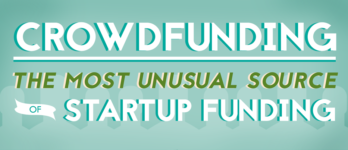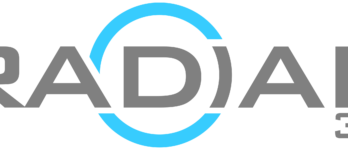
ProcessMaker improves efficiency with an intuitive, drag-and-drop interface that makes it easy for business analysts to model approval-based workflow.

Brian S. Reale, CEO
Name: ProcessMaker
Location: Durham, North Carolina
Website: www.processmaker.com
Product / Service Offering: Workflow Microservices API for Developers and BPM Software Suite for Enterprises
Co-founder Interviewed: Brian S. Reale, CEO
Other Key Management Team Members: Taylor Dondich, CTO; Joe Torano, CRO; Adolfo Lang, Director of Professional Services; Freddy Mercado, Director of Support; Tim Dunn, GM United Kingdom; Aziz Fatehi, GM France, John Paul Martin, Director of Customer Success
This article is part of our Business Startup Spotlight series featuring entrepreneurs and their companies. We hope that these founders’ interviews will inspire and motivate you as you undertake your own entrepreneurial journey.
Tell us a little about yourself with a focus on what motivates you.
I have always loved innovating and trying to find ways to make things work better. I keep a list of innovative ideas. Every day I try to come up with one new product improvement, business idea, or just something that could be done differently. 99% of these ideas are a bit strange, funny, or just plain stupid. However, 1% of them really are good new ideas. I usually try to mention the ideas to a co-worker or friend, and try to convince them why it would be a great idea. This is my daily innovation exercise. It keeps me looking at the world with fresh eyes and a good dose of humility.
Somehow I miraculously ended up in a great industry for satisfying my need to always try to improve the way things are done. Workflow and BPM are all about how to improve and automate business processes so that organizations can run better.
I get to enjoy my work on two levels. First, almost every day I get to learn about a particular organization’s process challenges in order to figure out ways ProcessMaker can improve or solve them. Second, every day I get to spend time thinking with my brilliant team about how to improve our own software so that it can better improve other people’s businesses. It’s a true win-win.
When did you establish your company and where did the idea originate?
We started the company in 2000 with a very different idea. We were trying to build a reverse auction platform for specialty insurance. The idea failed miserably. From that failure, though, we had written a bit of code. We were doing websites and database systems while we were trying to make our first idea work.
6 Startup Lessons Learned from Previous Mistakes
One of the jobs we got was to develop an “anti-corruption software” for a telecommunications agency in a country in Latin America. That project led us to create a system for routing requests so that everyone could see requests, know where they were in the system and how long they took to get answered. The result was the first version of our workflow platform which we then took to market a few years later as ProcessMaker.
What need or needs does your company seek to fill for its customers?
 First, we provide a set of tools that allows mid-market companies and large enterprises to design and automate their workflows. Workflows include things like purchase requests, leave requests, change requests, and credit requests. Essentially, a workflow involves automating the flow of forms so that people can make approval decisions, such as approving a purchase request or a credit request. In most organizations the approval routing can be quite complex and based on several different rule sets. Also, the information usually needs to be gathered from multiple people and other systems such as ERPs, CRMs, and Core back office systems.
First, we provide a set of tools that allows mid-market companies and large enterprises to design and automate their workflows. Workflows include things like purchase requests, leave requests, change requests, and credit requests. Essentially, a workflow involves automating the flow of forms so that people can make approval decisions, such as approving a purchase request or a credit request. In most organizations the approval routing can be quite complex and based on several different rule sets. Also, the information usually needs to be gathered from multiple people and other systems such as ERPs, CRMs, and Core back office systems.
Second, we provide a workflow microservices API called ProcessMaker I/O. It is meant for developers and ISVs that are building software that needs workflow built into the software. Our API has perfectly clean documentation, SDKs in all major programming languages, and scales infinitely in the cloud. To put it simply, there is no better way to add a workflow layer to accelerate your product team and ensure that the workflow functionality they deliver in your product is world class.
What is the one thing that sets your company apart from its competitors?
Most workflow software is just way too complex and difficult to use. It requires too much time and expensive teams to implement. From the origins of ProcessMaker we wanted to make software that resisted the feature clutter of our competitors and produced software that made workflow simple.
7 Steps to Assess Your Concept’s Competitive Environment
What was the biggest challenge you faced while getting your company up and running, and how did you overcome it?
ProcessMaker started with a small investment from the founders and a bit of family and friends money. We did not take on outside capital. We have always competed against venture backed companies with more money to spend. Therefore, we have always had to make tough and smart decisions about how to spend money to achieve growth. We also always had to make products that customers wanted.
8 Options Entrepreneurs Utilize for Startup Concept Funding
Are there resources you have utilized that other founders might find compelling or useful?
We managed to find some grant money in Europe about six years ago. The grants were a hassle to apply for, but it was a good option for raising non-dilutive funding. I would not do it now because we are a much larger company. At our size then, it was a good resource.
What steps have you taken to secure funding for your company and what, if anything, would you do differently if you had to start over?
We have not secured outside funding. We have chosen to grow organically and profitably from day one.
Have there been any questions you have had as an entrepreneur of a fledgling startup that you had a particularly hard time finding the answers to?
The hardest thing is learning how to grow when you don’t have a big outside investment. Timing is everything when you are growing organically. You always have a list of positions that you want to hire for, but you also need to time things perfectly, based on the way new contracts come into the business and contribute to growth.
Tools to help Start, Grow, and Fund your business!
What challenges, if any, are you grappling with?
Our clients have gotten bigger and bigger over time. We initially started selling to small businesses, then we migrated upwards, and today we sell to the mid-market and enterprise market. These markets require more formality. Legal expenses and the time required for contract negotiations increased dramatically. The pressure to implement security programs also increased. We have hired a significant amount of resources and spent a significant amount of money on security audits and procedures. We have made a serious commitment in these markets.
Key to Startup Success: Customer Discovery
What is the most helpful tip or “hack” you’ve ever learned, stumbled across, or been given?
In the early days it was VoIP systems. As an international organization, we couldn’t have done business without it. Later, we learned the power of discounting to get multi-year deals paid up front. It is a good way to raise cash without giving away equity. We generally target 10-15% of our sales to be multi-year upfront sales. These sales are at a slightly lower margin, but they offer good cash flow. For this reason, we try to balance these sales with yearly contracts.
Are you familiar with other startups you believe should be spotlighted? If so, we would like to hear from you. Tell us about them in the comments below!









